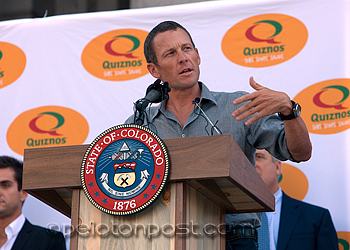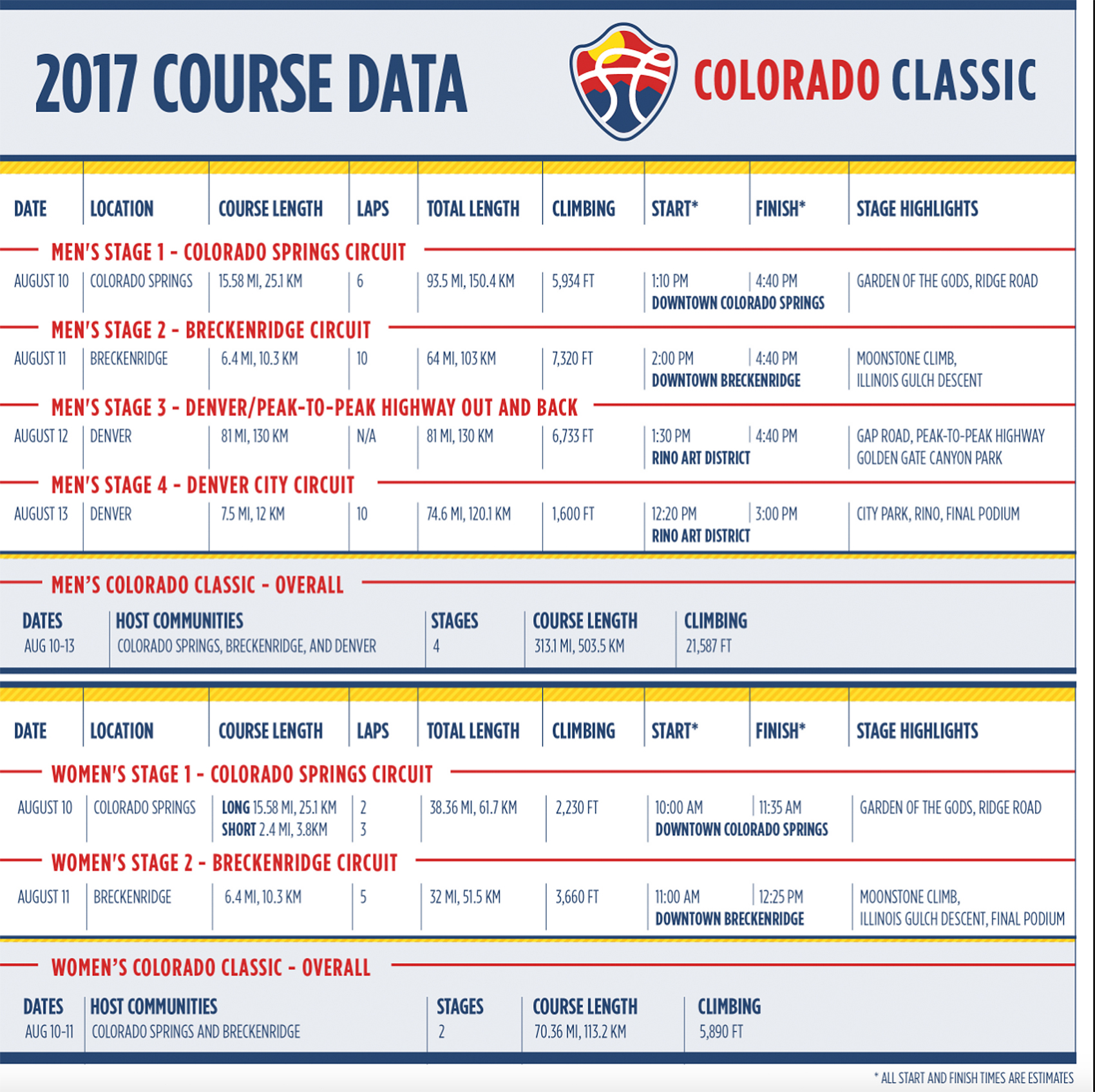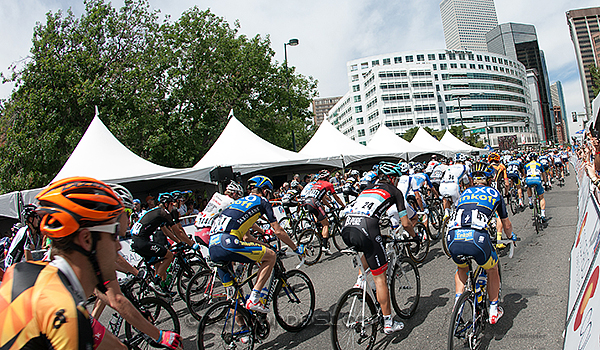Largest Spectator Event in Colorado Leaves Lasting Impact on the State
Denver (Oct. 28, 2014) – The 2014 USA Pro Challenge saw 128 of the best professional cyclists in the world compete in the toughest professional cycling race in the U.S. over the course of seven days, Aug. 18-24. Fans came out in droves to watch the action-packed, heart-pounding racing through the Colorado Rockies. After traveling to 10 host cities for the official stage starts and finishes, and passing through many other notable towns along the way, the estimated economic impact of the race to the State of Colorado is $130 million, according to a study done by Sponsorship Science, a global sports research firm. This is a 12 Percent Increase Over 2013.
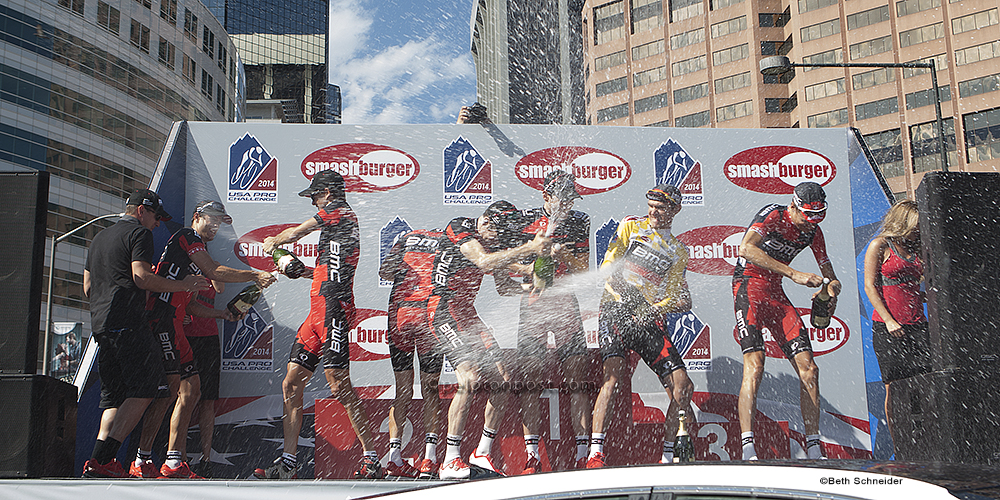
The Pro Challenge delivered another strong economic performance in its fourth running, with direct spending by traveling spectators contributing a significant portion of the economic impact. Both those fans from outside the state and Coloradans traveling 50 miles or more to take in an event stage contributed $130 million on lodging, food, transportation and entertainment, an increase of 12 percent year over year. This change was largely driven by a 10 percent increase in the average number of nights stayed and an 11 percent increase in per night average party spend, the result of a 15 percent increase in average per night lodging cost.
“Seeing the enthusiasm and passion from the fans lining the streets during the 2014 USA Pro Challenge really gave a sense of the growing support for the sport of cycling in the U.S.,” said Rick Schaden, owner of the race. “This race showcases Colorado to the world and creates an incredible economic impact locally that can be felt throughout the year. Further, it was great to see an increase in television viewership.”
Following an epic week of racing through picturesque Colorado scenery, America’s most challenging race came to a conclusion in Downtown Denver when Aspen resident Tejay van Garderen (USA) of BMC Racing Team maintained his lead and took the overall win for the second year in a row. The race received unprecedented coverage totaling 30 hours on NBC, NBCSports and Universal Sports in the U.S. Additionally, through 40 hours of international coverage, the race was seen in more than 175 countries and territories around the world.
A draw for Colorado travel, 56 percent of spectators claimed they would not have traveled to the state at this time if it were not for the race. And with that, 70.9 percent stated they are likely to return to watch the race next year.
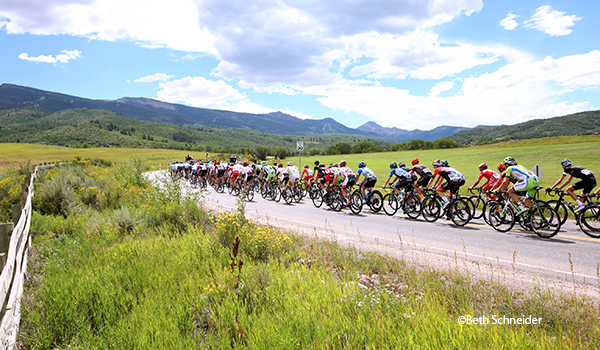
Additional interesting analysis points include:
· Spectators traveled in groups, with the average party consisting of three people
· The average hotel stay for spectators increased in 2014 to 5.3 nights
· 53 percent of race attendees live in households with income exceeding $85,000 and within that group 32 percent had household incomes in excess of $120,000
· Spectators enjoyed their race experience, with more than 80 percent saying they were very satisfied or satisfied with the race
· More than half of spectators in attendance reported they ride a bike for fitness, with 47 percent saying they engage in road cycling a lot
· This was an audience that appreciates the world-class level of competition at the USA Pro Challenge and watches major cycling events on television, with 83.8 percent stating they watch the Tour de France
About the research study
The USA Pro Challenge commissioned Sponsorship Science LLC, a global sports marketing & research consultancy firm with more than 50 years of executive experience working with events around the world, to continue conducting quantitative research measuring the change in overall economic impact of the Pro Challenge over time.
“While we conduct these types of studies for sports and entertainment clients around the world, across many platforms and geographies, cycling has always been a core sport, and one where we have a wealth of experience, ” said David Porthouse, SVP of Sponsorship Science, LLC. “Our history with the event and trust in the Pro Challenge management team, as well as the promoter Medalist Sports, has allowed us to develop the data and models used to accurately and fairly evaluate the growth of the race over time and its impact on the state of Colorado.”
Sponsorship Science, LLC designed the study from the outset to deliver consistent, defensible results which address many of the contentious issues surrounding economic impact reporting. Kevin Schott, director of Sponsorship Science notes the multi-year relationship with academia via Dr. Brett Boyle, professor within the sports business program at St. Louis University, has paid enormous dividends in terms of scientific rigor and credibility throughout the duration of this long-term relationship, serving as the foundation for the future. Key areas addressed included:
· Substitution effects – Since local fans will often spend similar amounts on local sports and other entertainment, Sponsorship Science, LLC did not include the local fan spend in the economic impact report, as a net impact, although local participation was thoroughly tracked, and forms a significant part of the appeal
· Time shifting – Colorado is an attractive destination for travel, so Sponsorship Science, LLC deliberately filtered respondents to ensure they were not capturing data from spectators already in Colorado, independent of the Pro Challenge, and also used elimination questions to remove those fans who intended to come to Colorado in the near future independent of the race. Despite these rigorous procedures, the number of dedicated fans travelling to the Pro Challenge has followed a long-term growth trend
· Sample sizes – Large samples were taken at all stages, distributed across the race locations, in order to create samples and sub-samples (by age, income, distance travelled, etc.) that are all statistically significant

